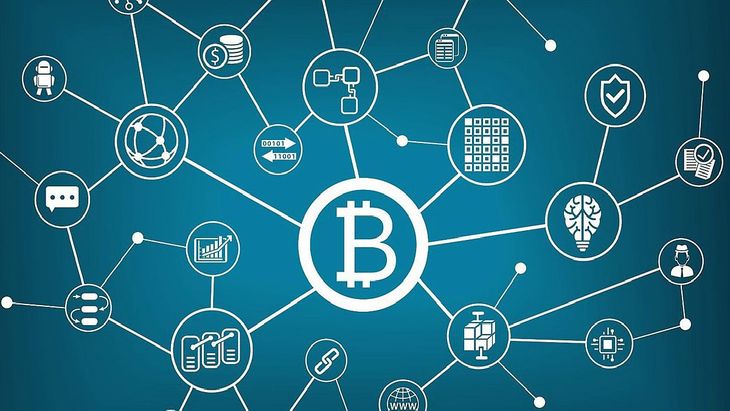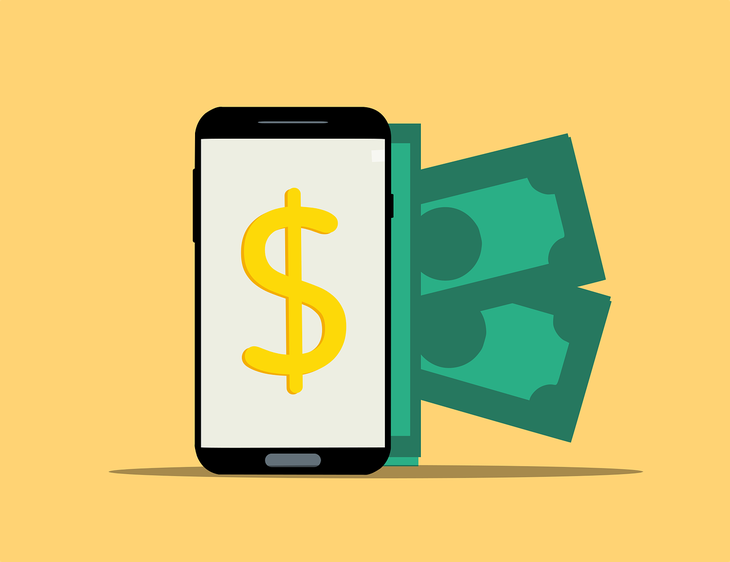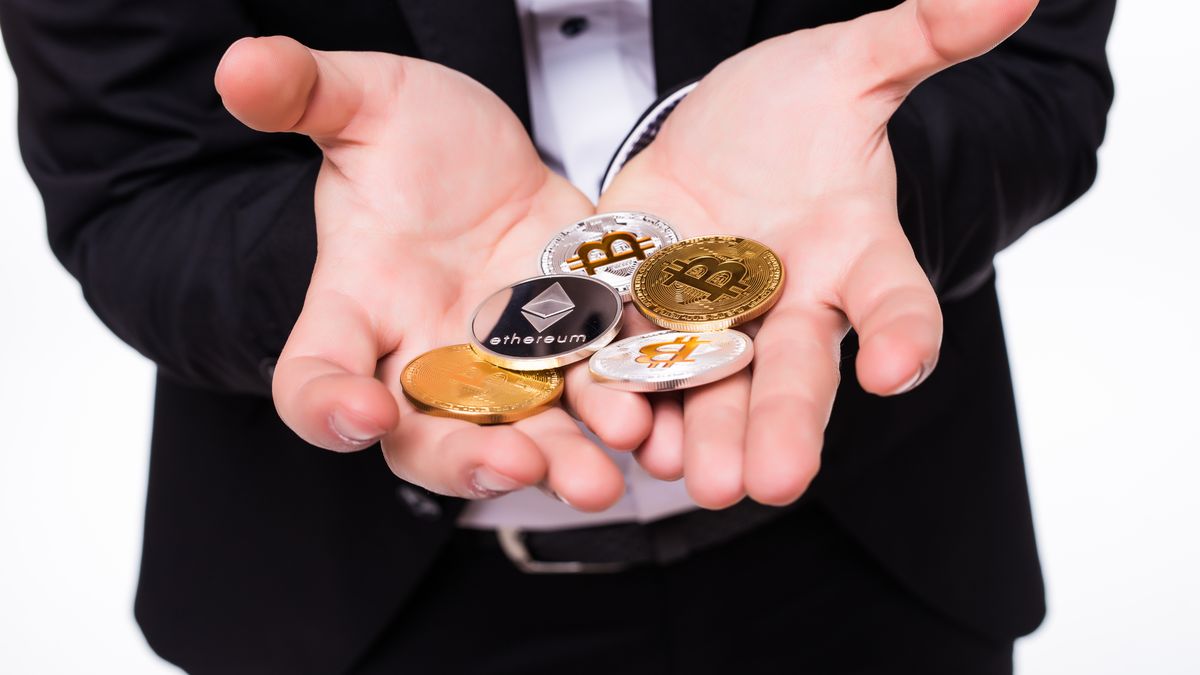Let us leave for another article the CBDC (digital currencies issued by central banks) that have already developed various economies such as China, Sweden, Bahamas, various Arab countries. Brazil is developing its CBDC and Uruguay developed a pilot test. There is also a Eurodigital project, while Trump froze the digital dollar project. It is essential that Argentina develop its CBDC.
Cryptoactive
A cryptoactive is a digital exchange instrument and is developed to perform transactions and exchanges between users.
Bitcoin was the first medium of exchange that arises as digital currency and began operating in 2009 in the framework of the global financial crisis.
It was developed by Satoshi Nakamoto, who until today is unknown his identity, is distributed through a P2P decentralized network. It is used to make digital payments anywhere in the world, and it was designed to be available for everyone, it is not owned by a single entity, but any person who has access to a computer and an internet connection can create an account BTC to make and receive payments digitally.
There is a debate if Bitcoin and other cryptoactives are a currency or a negotiable value. In one case it should be regulated by the Central Bank in the second by the National Securities Commission.
Bitcoin cryptocurrencies
Bitcoin, the most famous cryptocurrency in the world.
Depositphotos
Although active as Bitcoin have cancellation power and serve as a mechanism of change, their role as a reserve of value is questionable because it is an asset with volatility that resembles an action, which makes it similar to a negotiable value.
Currently cryptoactives are not regulated either by the Central Bank or by the National Securities Commission, they are not under the orbit of a control authority and do not need intermediaries. The CNV only created a registration of virtual asset services suppliers (PSAV).
To have a magnitude of the importance of cryptocurrencies, its capitalization is US $ 3.21 trillions, of which Bitcoin represents 59% of the total market value.
Although cryptoactive facilitates international payments, their dissemination facilitates tax evasion and various crimes such as money laundering, generating serious distortions in the economy. That is why central banks are reluctant for banks and other financial actors to operate freely, but recently the SEC (CNV of the United States) approved a kind of investment funds (ETF) that invest in cryptocurrencies of access to the public.
Blockchain
These assets use “blockchain” technology that records all the information corresponding to transactions, is a decentralized database that is not controlled by a unit center, but is distributed in a computers network.
The “blockchain” named for its block chain structure, is a database that allows the exchange of assets in a digital manner, registering all the details of the transaction and without that record can be modified afterwards, only you can only add new.
The characteristic of the “blockchain” is that, when decentralized, block chains are not stored in one place, but the information is saved simultaneously in all network users.
Blockchain 2.jpg

What are the “blockchain”?
ACFCS
If any of the users were without internet connection and therefore to the network, when connecting again, the remaining blocks are automatically loaded, the user may not alter them, because the system recognizes what the majority has stored.
“Blockchain” technology is a relatively immutable and transparent platform, it is a safe means to store, transfer and share information.
Types of “Blockchain”
- Public any can join and be part of it, example Bitcoin.
- Private is a closed network, there is an administrator who authorizes participants.
- Hybrids, a combination of the previous two
“Blockchain” applications
- Cryptocurrencies, the technological base for transactions and the exchange of these digital currencies is the blockchain
- Mining is the process of verification and validation of transactions in the blockchain, and of increasing the circulating of a cryptocurrency with the creation of new ones.
- Wallets are digital wallets that allow cryptocurrency to save.
- Intelligent contracts are contracts written with programming language that are valid without depending on anyone, it is a public code that cannot be changed and is established to execute in the blockchain, being decentralized, immutable and transparent.
Over time the heterogeneous blockchain that specialize according to the needs and the client’s item was developed. From traceability in logistics and transport, to save and share medical records, for “gaming” save games and lives, for financial products and derivatives, as for NFT or non -fungible token ej in art music and copyright. NFTS are unique digital collectible assets of a blockchain and token are rights, have no value, depend on the project.
“Wallets”
It is a software that allows you to send and receive the cryptocurrenciesIt is essential to operate with them. And stores public and private keys.
When creating a “wallet” two keys or keys are generated:
- Public key or key: It is the address that I am going to provide to receive cryptocurrencies, it is the location in the “blockchain” where cryptocurrencies can be sent. It is a kind of CBU.
- Private key or key: it is a chain of letters and numbers that is not shared, because it is access to funds from any device, and is used in case you have to recover your wallet.
“Wallet” types
- Cold or cold wallets, they are very safe physical keys similar to the “pendrive” that store the keys and their access, when they connect to the Internet, connect to the blockchain and only access the private key to authorize the transfer of crypts. EJ Trezor, Ledger.
- Hot or hot are digital wallets, totally online. And two types of custody are distinguished:
-
When I have control of the wallet and therefore of the keys, I can create them through decentralized platforms that allow to maintain total control of the keys. Eg Metamask, True Wallet, Binances Dex.
-
When control and custody has a third, an exchange, it is a platform where I open an account and generates a wallet with a username and a password and the two public and private keys, but I do not have total control and the Access to the blockchain is not direct I do it through the Exchange. For example, Fiwind, Lemon.
E-Wallet-G459B7F216_1280.png

Wallets “are very popular today.
“Exchange”
A DCE, Digital Currency Exchange, or simply Exchange is an online platform 24/7 that allows transactions or exchanges between cryptocurrencies and between these and Fiat money, the value of the crypto will be given by supply and demand.
Types of “Exchange”
Centralized Exchange
They are platforms to operate cryptocurrencies, without good they do not have a control entity under which they are supervised they are regulated complying with the KYC standards, meet your client and standards for the prevention of money laundering, establishing limits and requesting justification for The entry of Fiat currency into its platform.
In these platforms the user does not remain anonymous, but must make his identity known and verify it.
- Purchase platforms Exte eg Binance, Kraken, Coinbase
- Cryptocurrency brokers, are easier platforms than the previous ones and are used for cryptocurrency exchange between them or with Fiat currency. Eg Fiwind, Lemon cash, goodbit, bit2me.
- OTC platforms, work in the same way as traditional Over The Counter platforms, offer exchange between direct tips, are generally used for wholesale operations. Ex: fiwind, goodbit.
Wall-Street.jpg

The “Exchange”, another investment alternative.
New York Stock Exchange
“Exchange” decentralized
Dex or Decentralized Exchange are platforms that are used for cryptocurrency exchange, there are no transactions with Fiat coins. It is decentralized because the platform is scheduled with intelligent contracts that are executed in its blockchain, therefore, a third party does not intervene, the advantage is that it is totally transparent.
In these platforms, the KYC must not be met, so it is not necessary to verify the identity, the confidentiality is maintained and only the directions to perform the transactions are used.
The greatest advantage is that there is no risk of counterpart, that is, since there are no intermediaries, the risk of collapse of the exchange or the possibility of losing cryptocurrencies is not transferred. Eg Pancakeswap, Uniswap, Dydx.
Final reflections
The magnitude of the cryptoactive market globally and its easy accessibility to the public, in addition to the risks on the economy of a country require adequate regulation. Global regulators have acted slowly to establish norms that allow healthy market growth that avoid fraud and crisis as they occur periodically in recent decades.
Argentina needs legislation and comprehensive regulation by the BCRA, CNV, FIU, Ark etc. In order to avoid tax and financial illicit, avoid economic instability caused by these assets, in addition to fraud to investors.
The issuance of virtual assets should be regulated. The CNV has powers to do so and define cryptoactive or part of them as negotiable values, which is in the spirit and letter of the capital market law. In addition to limiting and controlling indiscriminate public offers that are potentially scams with “exchanges” outside the Argentine jurisdiction, not registered in your registry.
It is also central Promote comprehensive financial education where BCRA and CNV articulate with the national education system To allow the citizens who have these cell phone shooting assets to make decisions with adequate information assessing risks. This also implies improving access information throughout the system to avoid asymmetric information and market manipulations.
The sad episode of pound that adds to other global and local scandals, must be a touch of alert to adjust norms and control. In the case of operations in Argentina where the CNV refrained from sanctioning because they were not issues of its incumbency.
Not only for the legal responsibility that officials will have but for the need to generate clear and compliance rules to guarantee investments that require financial regulation agencies that fulfill the functions for which they were created. There can be no trust that allows economic growth without a market that can grow on healthy bases.
Source: Ambito




